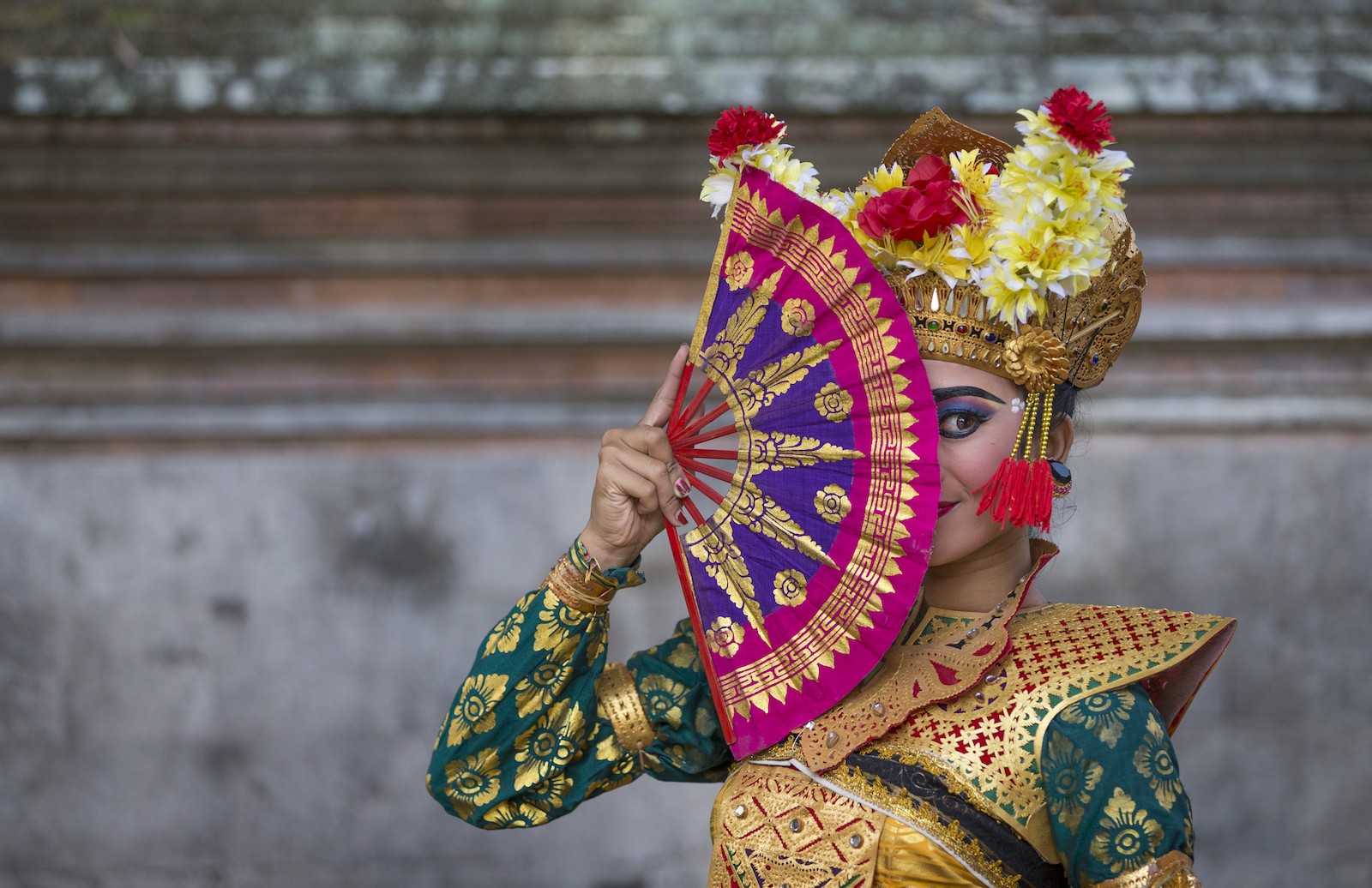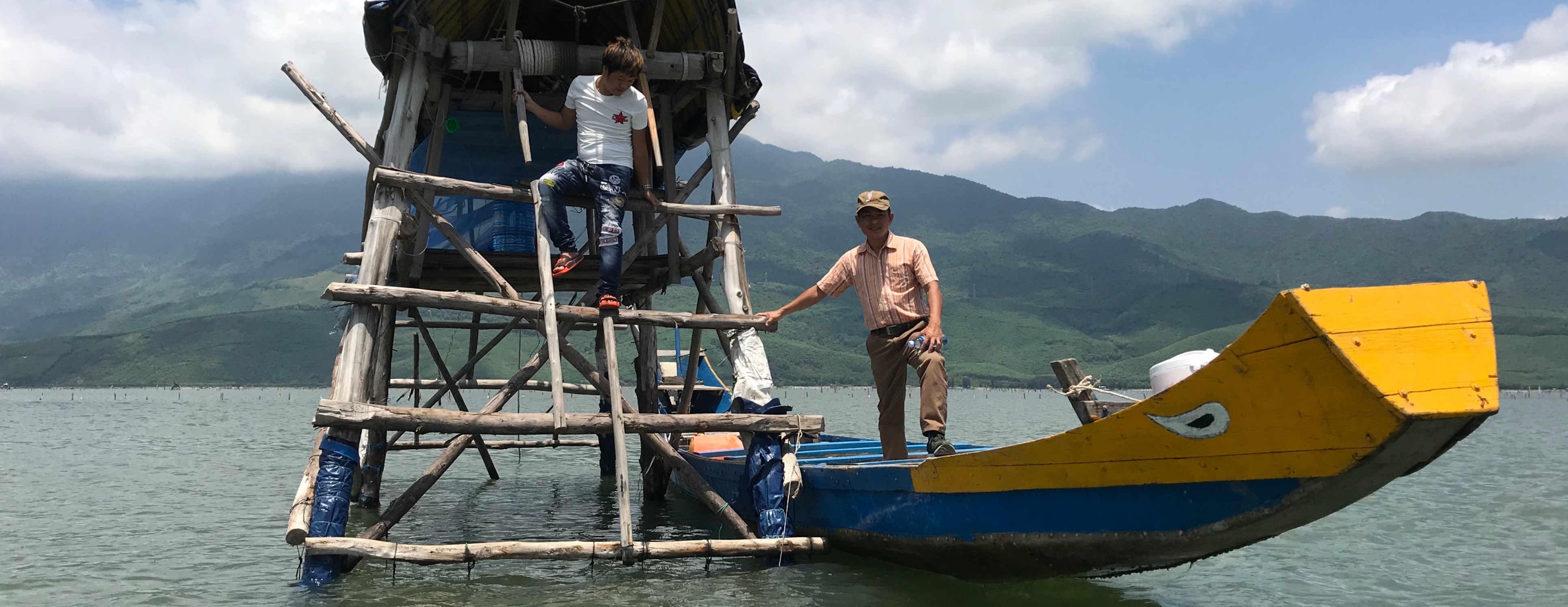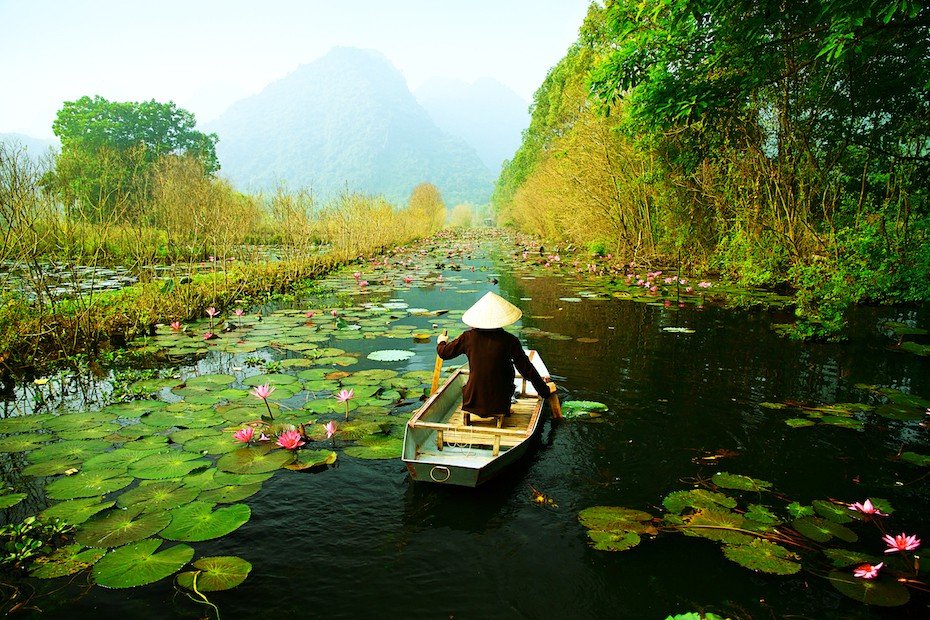Here you will find a short summary of useful facts, tips and advice for planning a trip to Indonesia. Does the overview below not answer your questions? Feel free to contact Asiatracks for tailored advice! Please email us at info@asiatracks.nl
Travel documents
For some countries a visa exemption is applied when entering Indonesia for a maximum of 30 days. Please check the official visa information of the Indonesian government if your country is mentioned as one of the countries. If your stay in Indonesia falls within 30 days, you will receive a 'tourist visa on arrival' upon arrival at the airport or at the border. Are you travelling through Indonesia for longer than 30 days or is your country not mentioned? Then you have two options:
- Buy your 'tourist visa on arrival' visa on arrival and then you can extend it once by 30 days at an immigration office in Indonesia (total 60 days).
- Buy a 60-day tourist visa in advance at an Indonesian embassy or consulate.
Notice: Your passport must be valid for at least six months after leaving Indonesia and must contain at least one empty visa page. You are always responsible for being in possession of valid documents and visas.
Vaccinations
For a valid vaccination advice please contact a recognised travel clinic, as the current vaccination advice often differs per instance. In general, the following vaccinations are recommended for Indonesia: DTP, Typhoid and Hepatitis A. In addition, malaria pills may be required. For different parts of Indonesia other advice may apply. Your health insurer will sometimes partially reimburse these costs. Consult your health care policy and check in advance through which health care institution these vaccinations may be reimbursed.
Health and medicines
Bring a compact travel pharmacy, which offers a solution for the first, small accidents. Iodine, band-aids and painkillers are practical items. ORS, a salt-sugar solution to be mixed with water, is also a good remedy for diarrhoea to prevent dehydration. Also diarrhoea inhibitors (iodine, loperamide) can be useful. These things are also available on location, but it is convenient in case of an emergency when you already have it with you.
If you are on daily medication, please check if you need a medical passport or certificate. If your medication falls under the Opium Act, you might have to submit a medical certificate upon arrival. Opiates include sleeping pills, strong painkillers and medication for ADHD.
Tip: No matter where you travel, you should carry all medications (even vitamins) in their original packaging, along with their original prescription. It is also a good idea to carry a letter from your doctor explaining what the medications are (using generic names, what they're for and dosage instructions.
Water from the tap is not drinkable in Indonesia: for this you buy bottles of water. Other risks: avoid ice cubes, peeled fruit, food from street stalls, raw vegetables (salads). Make sure food has been properly heated.
Money matters
The currency in Indonesia is the rupiah. Look for today's exchange rate on for example xe.com. It is most practical to withdraw cash directly from an ATM upon arrival at the airport. Always take some cash euros or US dollars (clean notes, without tears, folds, scratches) with you from home. These are easy to exchange and can come in handy. Finally, a credit card is also highly recommended: it allows you to pay and/or withdraw money from an ATM in case of an emergency (i.e. your regular bank card does not work).
Important: some bank accounts require you to set your debit card to 'World' so that you can also withdraw money and pay outside your country or continent. It is best to use ATMs that are affiliated with your bank. Nowadays, skimming bank cards is a big problem in some places in Indonesia. Precautions are: only use debit cards at ATM machines that are located in a bank or shop, check that everything is securely attached to the machine and check for any cameras (if in doubt, go to another ATM), shield your PIN code, leave your bank card on 'Europe' and only put it on 'World' if you are going to withdraw cash (this can nowadays easily be done in the bank app), keep an eye on your bank account and have it blocked immediately in case of suspicious transactions and contact your bank.
As a spending indication, we estimate you to spend at least around 225 euros per person per week on activities, meals, admission tickets or entrances to National Parks.
In Indonesia it is customary to negotiate the price when buying souvenirs, fruit on the market and sometimes also for taxi rides. This can be from 10 to 50% of the asking price, depending on where and what you buy. Rule of thumb: the more touristy the location and the more mobile the sellers, the higher the potential hiring percentage.
Tip: download the taxi app Grab (Uber of Asia): with this you can order a (car or motorbike) taxi anywhere, with the price indicated in advance.
Entrance fee
Most entrance fees in Indonesia are low (1 to 5 euros per person per object). Exceptions are national parks (10-25 euro per person per day; depending on the park) and the famous temples Borobudur and Prambanan (each approx. 23 euro per person). Entrance fees can sometimes change unannounced.
Tipping
Tipping is common in many tourist spots in Indonesia; in larger restaurants (about 10% of the bill), in hotels (Rp5,000 per bag for a porter) and also for drivers. For a driver who stays with you for a longer period of time, you can count on about 2 euros per person per day (depending on the number of travellers and the number of days). For a guide staying with you for several days we recommend an amount of 2-3 euro per person per day (depending on the number of participants). Further global guidelines: A tip for someone providing a one-time, small service: approx. Rp10.000-20.000; for someone you really want to reward for a special, one-time service (e.g. a day guide): Rp50,000-100,000 in total.
Climate
Indonesia has two seasons. The rainy season in most of the country runs from October to March. The dry season runs from April to September. Parts of Papua and the Moluccas have exactly the opposite season (dry season from October to April). Sumatra shows a changing picture throughout the year. The best time to visit Indonesia therefore varies per area, here you will find more information. The temperature is tropically warm all year round and fluctuates from just below to above 30 degrees. In high altitude areas it is logically a bit cooler and especially in the evening it may be necessary to put on a jacket or coat.
Public holidays
Due to the different cultures and religions Indonesians celebrate something every month. Most holidays are related to the religions Islam, Christianity, Hinduism and Buddhism. When planning your trip you should take into account the period around the sugar festival (idul fitri; a different date each year): in this period we do not recommend traveling on Java, Sumatra, Sulawesi. The period between Christmas and New Year can also be very busy. A list of public holidays in Indonesia can be found here events and festivals can be checked here.
Safety
For visitors, Indonesia is a travel destination with some security risks, check the foreign travel advice here. Risks that you as a traveller should always be aware of are petty crime (pickpockets, bag theft).
Tip: Scan your travel documents/credit cards/insurance details and keep them on your phone or in a folder in your mail, so you can access them anywhere on the internet. Use the lockers in your accommodation or carry your valuables in a money belt on your body.
Electricity
In Indonesia you may need an adapter and/or inverter, please check here if this is the case for you. It might be useful to purchase a travel plug just in case. In some remote areas there is no 24-hour electricity, so it mght come in handy to bring a flashlight on your travel.
Communication
Indonesia has a good mobile network; only in remote areas do you have less reach. Calling via normal lines is possible, but often the most expensive option. Calling via internet and apps is easy to do and much cheaper. After arrival in Indonesia you can possibly buy a local SIM card with an internet bundle, so that you are online during your trip. Many hotels offer free Wifi, which you as a guest can use via a password.
Time difference
Indonesia falls into three different time zones, view the current time in Indonesia here.
Language
The official language of Indonesia is Indonesian and originates from the old Malay. Most younger Indonesians and people from the city are good at English, especially people who often have to deal with foreigners. In areas outside the urban centres it sometimes gets more difficult. If you want to learn some Indonesian you can do so here.
Eating and drinking
The food in Indonesia is very varied and differs per island or population group. The Javanese cuisine consists of sweeter dishes, often with tofu and tempé. The Balinese love babi guling (suckling pig on a spit) and the Minangkabau cuisine from Padang, Western Sumatra is spicier again. The latter is also known for its rendang (traditional dry beef curry) and in the restaurants the table is filled with all the dishes and you pay for what you eat. Rice and noodles are served as main course with almost all meals. Fruit juices are also plentiful and good thirst quenchers. Vegetarian food is quite common in Indonesia: dishes with seafood, eggs, tempé and tahu (made of soybeans) are always available. For vegan food or for gluten-free and other allergy diets it is best to make some preparations (translate food restrictions into Indonesian).
Tip: if you want to learn more about Indonesian cuisine, we can organize fun cooking workshops in different places.
Visiting
If you are invited to a family home in Indonesia, take off your shoes at the door. Make sure you are dressed appropriately (shoulders and knees covered). You can bring a present (e.g. a tin of biscuits or other snacks) and this will be accepted and out of courtesy only opened out of sight. Remember that it is rude to show the bottom of your feet to the company or point at someone.
If you want to give something to children along the way, think of pencils, notebooks or children's books (and not candy or money). Do not distribute directly to children, but do so through an adult, who will distribute it to the children for you.
Clothing
Despite the tropical climate, it is not common in Asia to go scantily clothed on the streets. Especially, when visiting someone's house, temples and other religious buildings it is advisable to dress with respect: knees and shoulders covered, shirts with (half long) sleeves and 'just in case' always bring a thin scarf or sarong. During normal days shorts/skirts up to the knee and a T-shirt with sleeve are acceptable in most areas. Avoid cleavage with, for example, singlets (for women) or mountain bikes with a loose-fitting T-shirt. Swimwear should only be worn on the beach or by the pool. When visiting the jungle, it is best to wear closed shoes with a good profile. In an area with a lot of mosquitoes, we always recommend long sleeves and long trousers.
Smoking
Smoking is prohibited in air-conditioned areas, all airports and some other public areas. Make sure you do not run into a fine and check in advance whether smoking is prohibited.
Photography
People in Indonesia generally like to be photographed as long as you ask permission in advance. Some tribes or ethnic groups do not appreciate this, so be reluctant to do so. Sometimes extra entrance fees are charged for cameras.
Travel guides and books
- ANWB-wereldreisgids Indonesië (Nederlands): complete gids over de meeste eilanden.
- Michelin gids Indonesië (Nederlands): complete gids voor Java, Bali, Lombok, Flores en Sulawesi.
- Dominicus Indonesië (Nederlands): Java, Bali, Lombok, Sumatra, vooral veel achtergrond-info; minder praktische info.
- Elmar reishandboek Indonesië (Nederlands; 2018): Java, Bali, Lombok & Komodo
- Trotter reisgids Indonesië (Nederlands): Java, Bali, Lombok; kwalitatief goede informatie maar weinig uitgebreid.
- Gids Historische Stadswandelingen Indonesië (Nederlands): stadswandelingen in 9 Indonesische steden
- Reisgids Indonesië oorlogsplekken 1942-1949 (Nederlands): uitgebreide informatie over alle locaties van kampen en gebeurtenissen in Nederlands-Indië uit die tijd.
- Rough Guide Indonesia (Engels): Bijzonder uitgebreide reisgids voor heel Indonesië. Veel praktische informatie.
- Lonely Planet Indonesia (Engels): de bekendste reisgids voor heel Indonesië, vol met praktische informatie. Er bestaat ook een versie met alleen Bali & Lombok. Alle teksten zijn ook digitaal te verkrijgen.

Emile Leushuis -
Emile Leushuis
Asiatracks co-founder



